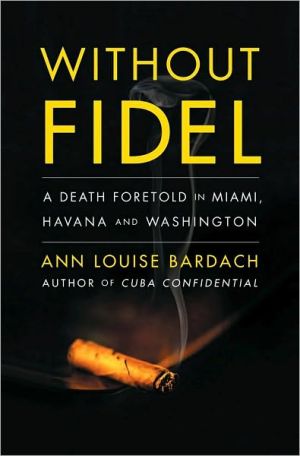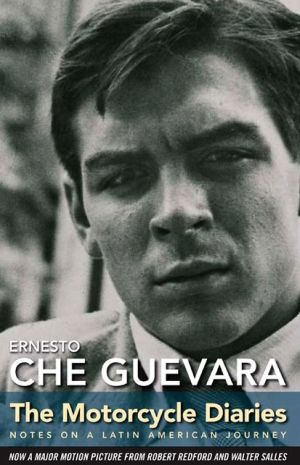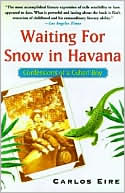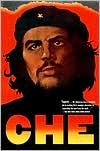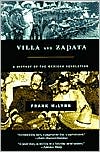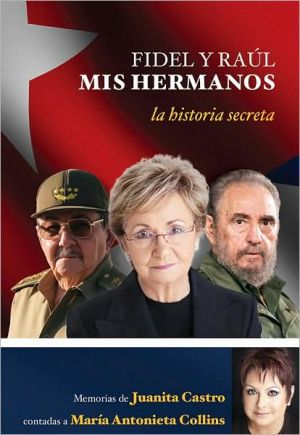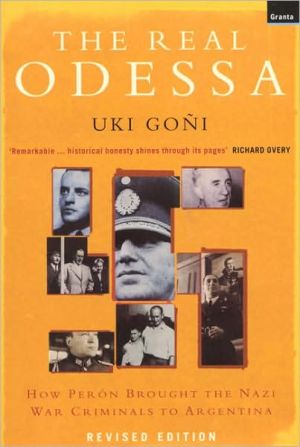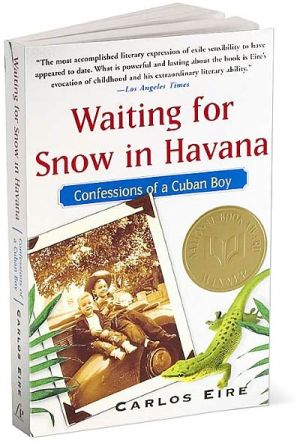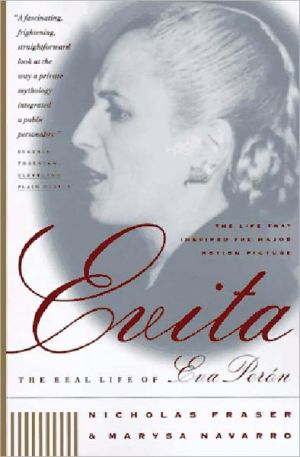Without Fidel: A Death Foretold in Miami, Havana, and Washington
From the award-winning reporter and go-to source on Cuban-Miami politics Ann Louise Bardach comes a riveting, eye-opening account of the last chapter in the life of Fidel Castro: his near death and marathon finale, his enemies and their fifty-year failed battle to eliminate him, and the carefully planned succession and early reign of his brother Raúl.\ Ann Louise Bardach offers a spellbinding chronicle of the Havana-Washington political showdown, drawing on nearly two decades of reporting and...
Search in google:
From the award-winning reporter and go-to source on Cuban-Miami politics Ann Louise Bardach comes a riveting, eye-opening account of the last chapter in the life of Fidel Castro: his near death and marathon finale, his enemies and their fifty-year failed battle to eliminate him, and the carefully planned succession and early reign of his brother Raúl.Ann Louise Bardach offers a spellbinding chronicle of the Havana-Washington political showdown, drawing on nearly two decades of reporting and countless interviews with everyone from the Comandante himself, his co-ruler and brother Raúl, and other family members, to ordinary Cubans as well as officials and politicos in Miami, Havana, and Washington. The result is an unforgettable dual portrait of Fidel and Raúl Castro — arguably the most successful and enduring political brother team in history.Since 1959, Fidel Castro has been the supreme leader of Cuba, deftly checkmating his foes, both from within and abroad; confronting eleven American presidents; and outfoxing dozens of assassination attempts, vanquished only by collapsing health.As night descends on Castro's extraordinary fifty-year reign, Miami, Havana, and Washington are abuzz with anxious questions: What led to the lightning-bolt purge of key Cuban officials in March 2009? Who will be Raúl's heir? Will the U.S. embargo end now?Bardach offers profound and surprising answers to these questions as she meticulously chronicles Castro's protracted farewell and assesses his transformative impact on the world stage and the complex legacy that will long outlive him. She reports from three distinct vantage points: InMiami, where more than one million Cubans have fled, she interviews scores of exiles including Castro's would-be assassins Orlando Bosch and Luis Posada Carriles; in Washington, DC, she reports on the Obama administration's struggle to formulate a post-Castro strategy; in Havanah she permeates the bubble around the fiercely private and officially retired Castro to ascertain the extent of his undisclosed medical condition.Bardach delivers a compelling meditation on one of the most controversial, combative, and charismatic rulers in history. Without Fidel includes never-before-published reporting on Castro, his family, and his half-century grip on the largest country in the Caribbean while assessing how his departure will forever transform politics and policy in the Western Hemisphere — and the world. Publishers Weekly Starred Review. Cuban leader Fidel Castro's phoenix-like return from a near death experience in 2006 is a fitting introduction to this exhaustively researched account of one of the world's last communist leaders. Castro's quixotic quest to outlive most of his comrades provides fresh fodder for the "Castro obit industry," and investigative reporter Bardach (Cuba Confidential) obliges with graphic accounts of Castro's numerous health issues. She also reveals many previously unknown family stories, from the illegitimate offspring who've fled Castro's repressive rule, to his relationship with his younger brother and successor Raúl (a "more mindful and empathetic" man). As titillating as these personal details are, Bardach doesn't skimp on the politics or the day-to-day obstacles of Cuban civilians living in grinding poverty. Bardach opens the window wide on the "diplomatic train wreck" that is U.S.-Cuban relations, including Miami's exile community, anti-Castro Beltway establishment members, and the history of U.S. attempts to remove Castro from power. Bardach also exposes hypocrisy in the American anti-terrorism campaign, which seem to give a pass to anyone actively plotting against Castro. Bardach's unmatched access to Castro and other major players makes this a thorough account of a long-lived world figure who, admired or reviled, is an undoubtedly fascinating subject. Copyright © Reed Business Information, a division of Reed Elsevier Inc. All rights reserved.
\ Publishers WeeklyStarred Review. \ Cuban leader Fidel Castro's phoenix-like return from a near death experience in 2006 is a fitting introduction to this exhaustively researched account of one of the world's last communist leaders. Castro's quixotic quest to outlive most of his comrades provides fresh fodder for the "Castro obit industry," and investigative reporter Bardach (Cuba Confidential) obliges with graphic accounts of Castro's numerous health issues. She also reveals many previously unknown family stories, from the illegitimate offspring who've fled Castro's repressive rule, to his relationship with his younger brother and successor Raúl (a "more mindful and empathetic" man). As titillating as these personal details are, Bardach doesn't skimp on the politics or the day-to-day obstacles of Cuban civilians living in grinding poverty. Bardach opens the window wide on the "diplomatic train wreck" that is U.S.-Cuban relations, including Miami's exile community, anti-Castro Beltway establishment members, and the history of U.S. attempts to remove Castro from power. Bardach also exposes hypocrisy in the American anti-terrorism campaign, which seem to give a pass to anyone actively plotting against Castro. Bardach's unmatched access to Castro and other major players makes this a thorough account of a long-lived world figure who, admired or reviled, is an undoubtedly fascinating subject.\ Copyright © Reed Business Information, a division of Reed Elsevier Inc. All rights reserved.\ \ \ \ \ \ Kirkus ReviewsWhat will the world be like once Fidel Castro leaves it? Noted Cuba watcher Bardach (Cuba Confidential: Love and Vengeance in Miami and Havana, 2002, etc.) considers several scenarios in this excellent study. The world has had a chance to ponder the problem for many years, from the earliest assassination attempts, courtesy of the CIA, to Fidel's near-fatal bout of peritonitis in 2006. It is the latter episode with which Bardach opens her book, whose subtitle alludes to an oddly fitting novel by Castro's friend Gabriel Garc'a Marquez. Even though Castro lay on death's door for weeks, he seemingly proved stronger than death, having adopted a regime that shunned alcohol and tobacco and favored brown rice and tea and having committed himself to outlasting every one of his enemies. Bardach's early pages are peppered with references to those enemies, not least of them Forbes magazine, which reckoned the legendarily spartan Castro to be among the wealthiest dictators in the world. The author also reckons with Castro's many successes, which include the self-evident fact that South America now abounds in nations that are left-leaning, friendly to Castro's communist regime and disinclined to participate in any new version of the Cold War pitting Cuba against the United States. Of course, Castro is no longer in power, formally, having transferred state rule to his brother Raul-by Bardach's account, Fidel's rival-who has inaugurated modest reforms. Less modest are the changes pending under the Obama administration, which, apart from the difficult business of the U.S. naval base at Guantanamo Bay, appears to be willing to begin the processes of normalizing relations, including allowing travel and thetransfer of funds to Cuba. This prospect gives the anti-Castro exile community in Miami-an important node in Bardach's geography-fits, but even that is changing, as Castro acts out his final days as "Fidel the Wizard, hidden behind the curtain of Cuba's Oz."Will the world be a better place without him? Bardach is evenhanded, but, she concludes, it will surely be different-and with no easy transition in sight. Agent: Tina Bennett/Janklow & Nesbit\ \
